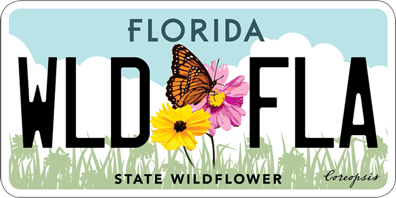FWF receives grant for “20 Easy Wildflowers”
The Florida Wildflower Foundation (FWF) has received a $17,000 grant from Stanley Smith Horticultural Trust for its project, “20 Easy Wildflowers to Grow Now!” It includes a publication, continuing education courses for horticultural professionals, and live social media events.
The grant project will emphasize the importance of site selection and bed preparation, as well as the use, planting, spacing and maintenance of 20 wildflower species. Featured will be Asclepias, Conradina, Coreopsis, Chrysopsis, Gaillardia, Liatris, Scutellaria, Dyschoriste, Helianthus, Monarda, Pityopsis, Rudbeckia, Ruellia, Salvia, Solidago, Silphium, Glandularia, Cassia, Hypericum and Symphyotrichum.
FWF partners in the effort are the Florida Association of Native Nurseries and the Native Plant Horticulture Foundation. Project elements include:
- A 24-page publication containing information about the selection, planting, maintenance, landscape use and behavior of 20 easy-to-grow Florida native wildflowers. The publication will devote one page per wildflower, describing the plant and its landscape uses, defining ideal site conditions, and featuring full-color photos. It also will list resources such as partner websites. A guide on establishing a bed by seed will be included. Fifty-five thousand copies will be printed for distribution to Florida residents and landscape professionals statewide. The publication also will be available online for download as a PDF on partner websites.
- Two Facebook Live events featuring segments on the plants, which will be recorded and uploaded to partners’ YouTube channels.
- A course in which landscape professionals can earn continuing education units (CEUs).
“We are deeply appreciative to the Trust for the grant and its continuing support of our efforts to educate both professionals and residents about Florida’s wildflowers,” said FWF Chairman Terry L. Zinn. “There is building interest in incorporating wildflowers in urban plantings, yet there’s little information available on their care and use. This will be a big step forward in addressing those shortcomings.”

